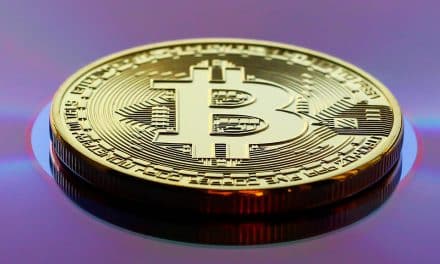The cryptocurrency and blockchain industry has been at odds with the SEC for quite some time. Digital tokens better known as cryptocurrencies may or may not be declared as securities by the SEC. XRP developed by Ripple Labs has been in the middle of this debate whether digital currencies are securities or not. It is like other cryptocurrencies such as bitcoin and Ethereum.
However, XRP tokens are pre-mined and its decentralized nature is a matter of open discussion. Crypto fundamentalists believe that XRP must not be considered as a decentralized cryptocurrency because it does not fulfil certain criteria. This saw XRP prices witness a sharp correction when it was rumoured that it would be considered as security by the SEC.
Ripple Labs co-founder Chris Larsen was forced to defend XRP as a decentralized token when panic gripped markets. The future of XRP and Ripple Labs depends on whether the SEC classifies XRP as security or not.
SEC definition of security and what is not considered as security
According to the SEC, any financial asset that holds some value in fiat currency and is fungible is a security. In a public statement on cryptocurrencies and ICOs SEC Chairman Jay Clayton said, “It has been asserted that cryptocurrencies are not securities and that the offer and sale of cryptocurrencies are beyond the SEC’s jurisdiction.” Mr. Clayton also added, “By and large, the structures of initial coin offerings that I have seen promoted involve the offer and sale of securities and directly implicate the securities registration requirements and other investor protection provisions of our federal securities laws.”
Mr. William Hinman, Director, Division of Corporation Finance gave another definition of security. At the Yahoo Finance summit, he said that the decentralized nature of any digital token was a major deciding factor in considering it as security or not. He stated, “The token (or coin) or whatever the digital information packet is called, all by itself is not a security.” Mr. Hinman cited the Howey test and added, “Central to determining whether a security is being sold is how it is being sold and the reasonable expectations of purchasers.”
When a Digital Asset becomes a Security
A crypto asset is considered to be a security if its transactions qualify as an investment contract. The Howey test is used to determine if transactions are investment contracts or not. The Howey test concludes a transaction to be an investment contract if it satisfies certain conditions. The transaction involves an investment of money.
The investors expect a profit from their investment. The investment is a common enterprise. The expected profits are the result of the efforts of a third party. If the investment is outside the investor’s control that asset is deemed as a security. An investment is not considered a security if its profits are based on the actions of the investor. If a digital asset satisfies the Howey test and is declared an investment contract, it should be considered a security.
Ripple Labs and XRP
Ripple Labs is a company that provides software solutions. Their primary products are xCurrent, xRapid and xVia. Banks and other financial institutions use xCurrent to settle global transactions. It is a messaging protocol that transfers messages between the financial institutions. xCurrent uses a distributed ledger called Interledger developed by Ripple. Ripple offers xRapid as a product that facilitates liquidity.
Using xRapid, it is possible to make payments with less liquid assets such as gold. Ripple offers xVia as an API solution to easily establish connections between banks and Ripple’s products. XRP is the cryptocurrency used by xRapid. Validators authorized by Ripple process transactions of XRP. These points make XRP highly centralized. Since Ripple holds a majority of the XRP, it will always have an influence over its value.
Will XRP be classified as security?
Ripple Labs CEO Brad Garlinghouse believes that XRP is not a security and said, “I think it is very clear that XRP is not a security. It exists independently of Ripple the company. If Ripple, the company shut down tomorrow, XRP will continue to exist.” Ripple’s centralized nature has been a talking point. SEC officials have repeatedly stated that the chances of a digital token being considered as security is related to its decentralized nature. Mr. Garlinghouse defended the decentralized nature of XRP by stating that the existence of XRP is not dependent on Ripple Labs.
The primary reason why XRP may be considered as a security is its centralized nature. Since Ripple holds a lot of XRP, its value will be affected by the decisions Ripple makes in the future. Ripple received a fine of $450,000 in 2015 for selling XRP without registering it with FinCEN. Another reason for the fine was that Ripple did not establish a proper anti-money laundering procedure in place. If XRP were to be deemed a security, FinCEN will have to explain why it allowed the distribution of an unregistered security. Ripple and FinCEN entered into an agreement in 2015.
The Howey Test on XRP
The SEC seems to by apply the Howey test as one of the criteria to judge an asset as a security or not. The Howey test deems XRP to not be a security. The Ripple company states that XRP is not an investment. XRP holders have no rights within the Ripple company. Ripple has never claimed that the price of XRP would increase, so there should be no expectation of profit from purchasing XRP.
A common enterprise is where investors invest in a project. While Ripple does hold the majority of the currency, XRP can be bought on exchanges that have no relation to Ripple. The Howey test also determines if the profit arising from the investment is due to a third party or not. XRP is not an equity share sold by Ripple Labs and hence its owners have no claims to any dividends. Gary Gensler, former chairman of the Commodity Futures Trading Commission took a contrary view and said that Ripple could be classified as a security.
Implications of XRP being a security
XRP would be unable to fulfil its primary purpose of providing cross-border liquidity if the SEC declared it as a security. The legal issues around securities would prevent it from doing so. It would also mean that owning XRP implies owning a piece of the Ripple company.
This would make everyone who holds XRP a ‘shareholder’ and will have indirect control of the company. Ripple will also have to contend with the class action lawsuits that are currently active against it and XRP. Ripple may face serious fines and even prison sentences for top officials. The parent company may have to compensate investors under the Mandatory Victims Restitution Fund Act.
XRP being declared as security will have large implications not only for itself but for the entire crypto community. Digital tokens sold through ICOs would then be next in line to be declared as securities. The SEC already has kept close vigil on the ICO industry and even shut down few fraudulent ICOs.
Impact on Investors of any SEC announcement on XRP
The SEC announcing XRP as a security will have negative short-term effect for its prices. A sharp selloff will, however, have no effects on the basic technology behind XRP. Ripple Labs may have to function as a publicly listed company and then work under a new set of regulations. The SEC decision may not have much effect on Ripple Labs operating the business.
This drop will be temporary though as XRP will then be traded on traditional trading platforms. Retail investors who are already invested in XRP may look to exit at their stop loss. It would become easier for Ripple Labs to raise capital for future growth of Ripple if it is listed publicly. Institutional investors will be more open to investing in the growth of XRP.
What the future holds
In the current scenario, there is very little chance of XRP being declared as a security. But there are many other coins out there that could be declared as securities. Sooner or later these coins will be classified as securities by the SEC. Founders of those ICOs may simply abandon their projects to escape legal trouble.
Ethereum has been declared as not a security. This situation will see a huge negative effect on the crypto market in the short term. In the long term, many new projects will emerge that will make the blockchain technology evolve and be compliant with new laws.





